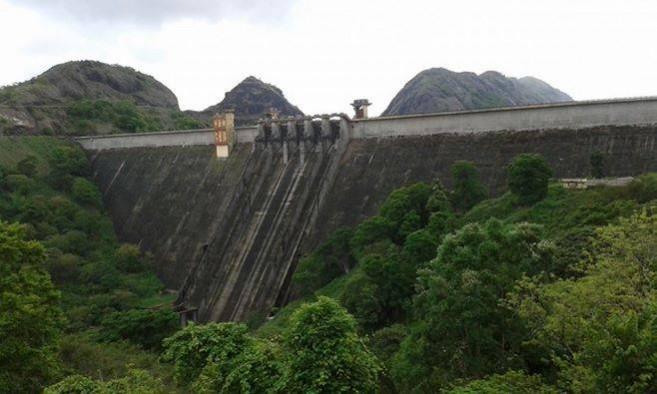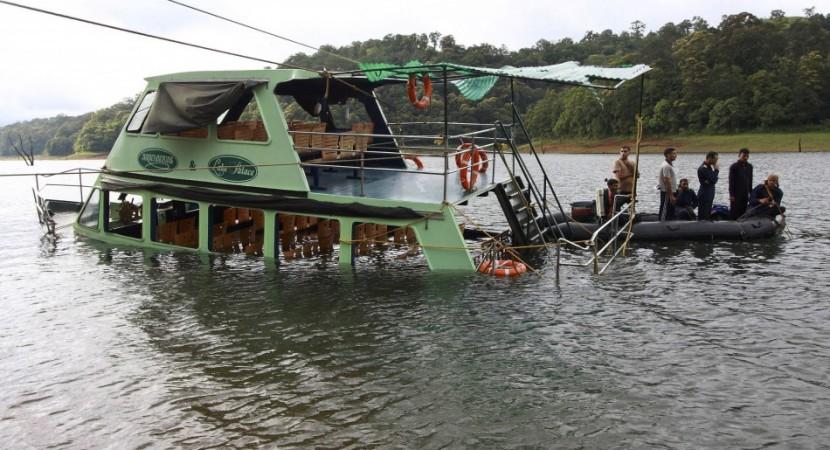
The central government has given the go-ahead to Kerala to undertake preliminary studies on the feasibility of building a new dam in Mullaperiyar to replace the century-old structure.
The conditional permission to Kerala was accorded by the environment ministry. The crucial decision, which could will up the festering wound in Kerala-Tamil Nadu relations once again, was taken after Kerala made a fresh submission late in September, following the floods in August.
Tamil Nadu responded quickly to the decision, accusing the ministry of contempt of court.
As per the latest government order, Kerala will be able to conduct a study for the construction of a new dam at Mullaiperiyar. The order specifies that the permission for conducting a study does not mean Kerala is entitled to get the environmental clearance for the new dam.
The ministry added that Tamil Nadu's permission for data collection for preparation of EIA report is necessary before Kerala can apply for green clearance.
Mullaperiyar dam has been a contentious topic for several decades. The dam was built in Kerala 123 years ago during the British era but the royals of Kerala had curiously given the Madras presidency the ownership of the structure for 900 years.
The issue was revisited several times after the formation of the states of Kerala and Tamil Nadu, with Kerala citing the safety concerns from the ageing structure. Tamil Nadu opposes the construction of a new dam in place of the existing one, over fears that the ownership clauses can potentially change when the new structure is built.
While Kerala has argued that millions of lives would be lost in the event of a dam breach, Tamil Nadu cites the 2014 order by the Supreme Court that upheld the safety of the dam. A court-appointed empowered committee had found that the dam was safe hydrologically, scientifically and structurally.

Kerala suffered another setback in 2017 when the Supreme Court accepted Tamil Nadu's demand to raise the water level to 142 feet from 136 feet. The court also decreed that the water level can be eventually raised to 152 feet after the completion of maintenance works on the structure.
The empowered committee had overlooked a 2009 report by IIT Roorkee that said the Mullaperiyar dam could suffer damage if an earthquake of 6.5 magnitude struck the region, adding that water level above 136 feet was unsafe.
Kerala re-started the process to get the new dam project moving in the aftermath of the century's worst flood in August that took the lives of hundreds of people and destroyed property worth tens of thousands of crore.
The safety of dozens of dams in Kerala, as well as their role in worsening the floods, was a moot point in the days after the floods. The central ministry took note of the changed backdrop to the decades-old dispute in its latest order.
"The project proponent (Kerala government) intimated the EAC that in view of the recent development and severe floods in Kerala State, the Government is keen to conduct the studies on the proposed project in order to know the present situation," the minutes of the ministry meetings said.
In 2015, Tamil Nadu Chief Minister J Jayalalithaa had approached the prime minister, pitching for a denial of permission for Kerala to dust up the project of a new dam.
In the latest development, the environment ministry's expert appraisal committee (EAC) observed that collecting data and a study is minimum requirement for taking up any project and cannot be denied.
Tamil Nadu said the ministry violated the 2014 verdict of the Supreme Court. "It's contempt of court. We will file a contempt petition against the Union Ministry of Environment and Forests" a senior official told the New Indian Express.









